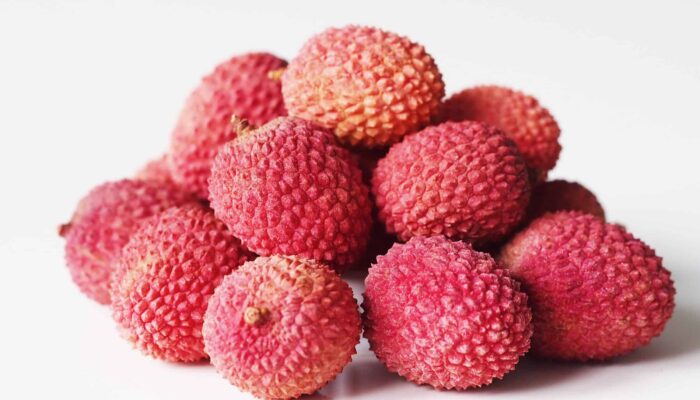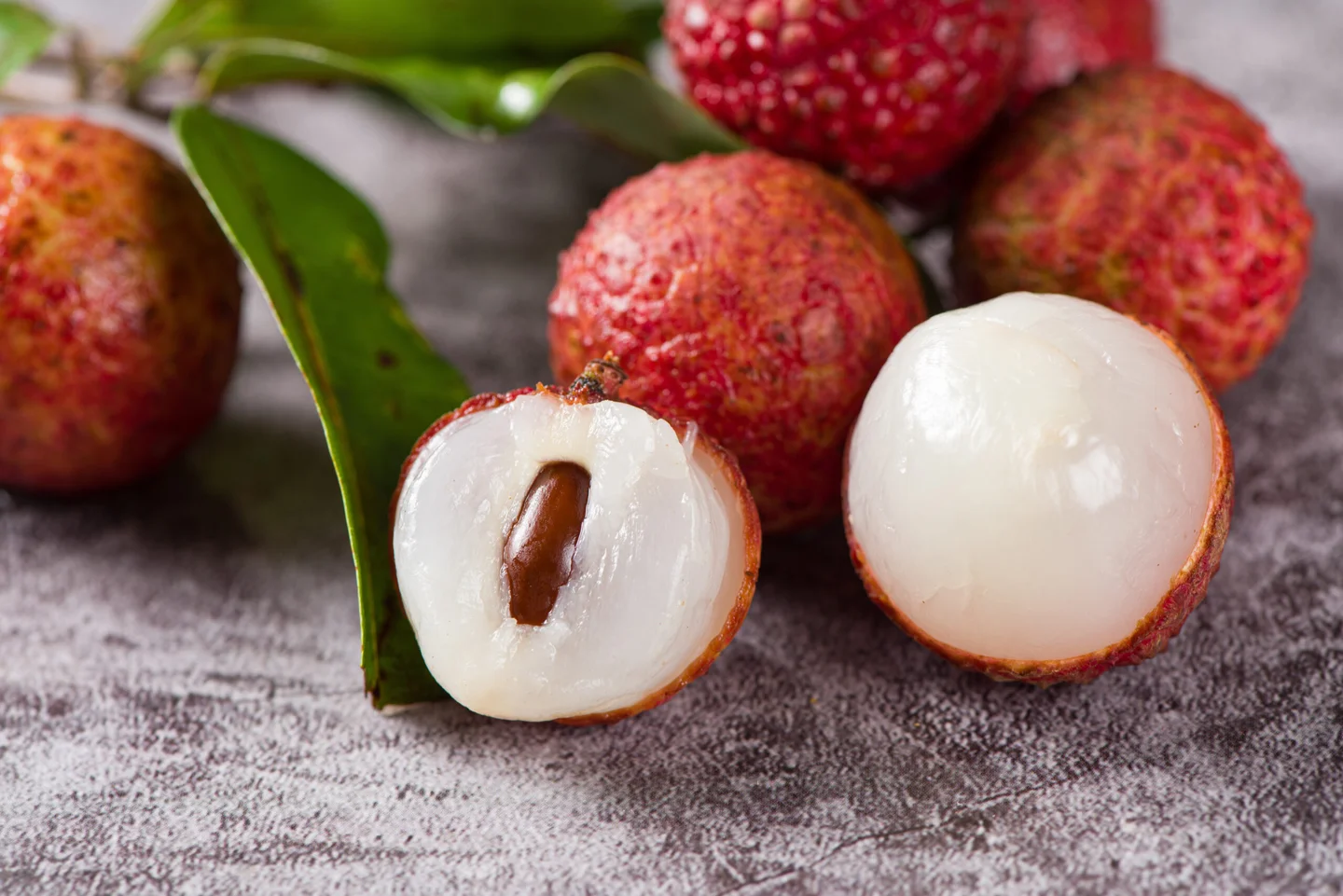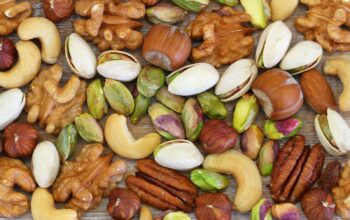The lychee, or Litchi orlichee (Litchi chinensis), is a tiny tropical fruit belonging to the soapberry family.
This family of fruits also includes the well-liked rambutan and longan.
Lychees are native to China and are grown all over the world in subtropical climates; they are particularly well-liked in Southeast Asia.
Well-known for their floral and sweet taste, they are usually consumed raw but can also be processed into wine, juice, sherbert, and jelly, or added to ice cream.
They’re a good source of beneficial antioxidants, minerals, and numerous vitamins.
The leathery, pink-red, inedible skin of lychees is removed before eating. A dark seed sits in the heart of the white flesh.

Facts about Nutrition
Water and carbohydrates make up 82% and 16.5% of the fruit, respectively, and are the major components of lychees.
This is what 3.5 ounces (100 grams) of fresh lychees provide you in terms of nutrition. The primary nutrients found in fresh lychees are listed in the table below:
- 66 calories
- 0.8 grams of protein
- 16.5 grams of carbohydrates
- 15.2 grams of sugar
- 1.3 grams of fiber
- 0.4 grams of fat
Fibers and Carbohydrates
Lychees are mostly made up of carbohydrates, other from water.
1.5–1.7 grams of carbohydrates can be found in one lychee, fresh or dried.
Sugars provide the bulk of the carbohydrates in lychees and give them their sweet flavor. They don’t have a lot of fiber.
Minerals and Vitamins
Lychees are a good source of the following vitamins and minerals:
The most prevalent vitamin in lychees is C. Roughly 9% of the Reference Daily Intake (RDI) for vitamin C is found in one lychee.
Lychees are a good source of the mineral copper. Heart health may suffer from a diet low in copper.
When consumed in enough levels, potassium, an important vitamin, may help heart health.
Additional Plant Substances
Lychees are a good source of different antioxidant plant components, just like other fruits.
Actually, compared to a few other common fruits, they have been found to have higher quantities of antioxidant polyphenols.
Among the antioxidants in lychees are:
Epicatechin: A flavonoid that may lower your risk of diabetes and cancer while also potentially improving heart health.
Rutin is a flavonoid that has been shown to offer protection against heart disease, diabetes, and cancer, among other chronic illnesses.
Oligonol
A nutritional supplement called oligonol is frequently brought up in relation to lychees.
It is a proprietary blend of proanthocyanidins, which are antioxidants, made from green tea and lychee skin. It was created in Japan by Amino Up Chemical Corporation.
To improve their absorption from your intestines, the antioxidants undergo chemical modification.
Oligonol may lessen fatigue, inflammation, and belly fat during exercise, according to a number of studies.
But its health benefits do not extend to lychees, as it is not naturally present in lychee fruits.
Potential Health Advantages
There is currently no research on lychees’ effects on health.
But eating a wide range of fruits and vegetables can help you stay healthier and lower your chance of developing a number of chronic illnesses.
Lychees are a good source of potassium, copper, vitamin C, epicatechin, and rutin, among other beneficial minerals, vitamins, and antioxidants. Heart disease, cancer, and diabetes may be warded off with the use of these.
Additionally, lychee extract may aid in the battle against liver cancer, according to animal research.
However, more research is required to validate the health advantages of lychees in people.
Unfavorable Impacts and Personal Issues
Lychees have no known negative health consequences when consumed in moderation as part of a balanced diet.
But in South and Southeast Asia, lychees have been linked to brain inflammation.
Although the exact cause of the incident is unknown, scientists have proposed that the toxin hypoglycin A could be to blame. It is necessary to conduct more research.
Furthermore, lychees may in rare circumstances result in an allergic reaction.
The Final Word
Lychees are less widespread outside of Southeast Asia and China, yet they are popular there.
They are a good source of vitamin C and numerous helpful antioxidants, and they taste sweet and fragrant. They are therefore a great complement to a balanced diet.










